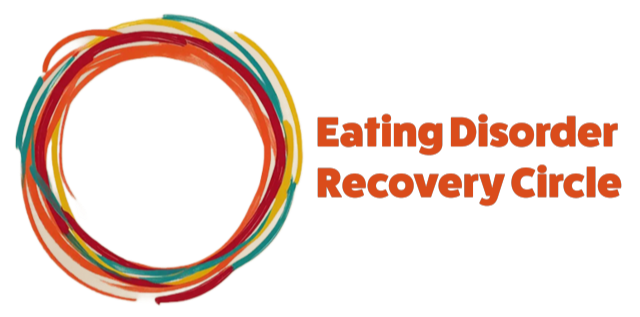How to Deal with Guilt After Eating
Mar 09, 2025Guilt after eating can feel instant, overwhelming, and inescapable—even when you know that food is essential for recovery.
✔ “I ate more than I planned—I feel out of control.”
✔ “I don’t ‘deserve’ this food.”
✔ “I should compensate somehow.”
These thoughts can trap you in shame, self-criticism, or urges to restrict again. But guilt after eating is not proof that you’ve done something wrong—it’s a conditioned response that you can unlearn.
If guilt is making eating feel impossible, check the Feelings Navigator for tools to manage self-judgment and emotional distress.
Step 1: Recognise That Guilt Does Not Mean You Did Something Wrong
Guilt is an emotion, not a fact.
🚫 Eating is not a mistake.
🚫 Your body does not judge food choices—only your thoughts do.
🚫 You do not need to ‘earn’ or ‘compensate’ for nourishment.
✔ Your brain has been conditioned to associate eating with guilt—but that does not make it true.
💡 Guilt is a learned response, and anything learned can be unlearned.
📌 If guilt after eating feels automatic, explore self-compassion tools inside the Feelings Navigator.
Step 2: Identify Where the Guilt Is Coming From
Guilt often arises from deeply ingrained beliefs about food, control, and self-worth.
🔹 Fear of weight gain → “I shouldn’t have eaten that much.”
🔹 Diet culture conditioning → “That food is ‘bad,’ so I was ‘bad’ for eating it.”
🔹 Moral judgments around food → “I ate ‘too much’—I’m weak.”
🚫 These beliefs are not facts—they are learned rules designed to keep you trapped.
💡 You can choose to challenge them.
📌 If identifying the root cause feels difficult, talk through it inside The Circle.
Step 3: Reframe the Meaning of Eating
If eating feels like a failure, try shifting how you define it:
🔹 Instead of: “I lost control.”
✔ Try: “I gave my body the nourishment it needed.”
🔹 Instead of: “I ate something ‘bad.’”
✔ Try: “Food has no moral value—it’s fuel, comfort, and connection.”
🔹 Instead of: “I should have eaten less.”
✔ Try: “Restriction keeps me stuck. Nourishment moves me forward.”
💡 Your body does not see food as ‘too much’—it sees it as life.
📌 If reframing thoughts is hard, use the Feelings Navigator for guidance.
Step 4: Resist the Urge to ‘Make Up’ for Eating
Eating disorder guilt often triggers the urge to compensate—by restricting, exercising, or self-punishing.
🚫 Compensating only deepens the cycle.
✔ Eating regularly retrains your brain to see food as neutral.
✔ Honouring your hunger stops the guilt-restrict cycle.
✔ Moving on without ‘correcting’ food choices is how you rewire your thoughts.
💡 The only way out of guilt is through it—without acting on it.
📌 If the urge to compensate feels strong, reach out for support inside The Circle.
Step 5: Take a Recovery-Aligned Action Instead
Instead of spiraling into guilt, choose an action that supports healing.
✔ Distract yourself—engage in a non-food-related activity.
✔ Challenge the guilt by eating again later—without restriction.
✔ Write down what food gives you—energy, brainpower, connection.
✔ Engage with recovery-positive people who remind you of the bigger picture.
💡 Guilt is not a signal to stop eating—it’s a signal to keep healing.
📌 If taking action feels overwhelming, ask for encouragement inside The Circle.
Step 6: Be Patient—Guilt Fades with Repetition
✔ The more you eat despite guilt, the weaker it becomes.
✔ The more you reject diet culture rules, the more food becomes neutral.
✔ The more you separate morality from eating, the freer you feel.
🚀 You are not guilty—you are healing.
📌 If guilt still feels consuming, revisit the Feelings Navigator for tools on self-acceptance.
When to Seek Extra Support
If guilt after eating is leading to restriction, compensation, or deep distress, you don’t have to handle it alone.
🔹 A recovery coach or therapist can help you break the guilt cycle.
🔹 Others inside The Circle can validate your struggles and support you.
🔹 Every step toward food freedom is a step toward full recovery.
Next Steps
🎯 If guilt is keeping you stuck, check the Feelings Navigator for mindset tools.
🎯 For more recovery support, explore other mindset articles inside The Circle.
🎯 Engage with discussions inside The Circle to see how others have overcome this.
Final Reminder
🚀 Eating is not wrong. You have done nothing wrong. There is no guilt in nourishment.
Food is fuel, life, and freedom. You deserve to eat—without punishment, without justification, without guilt. ❤️

